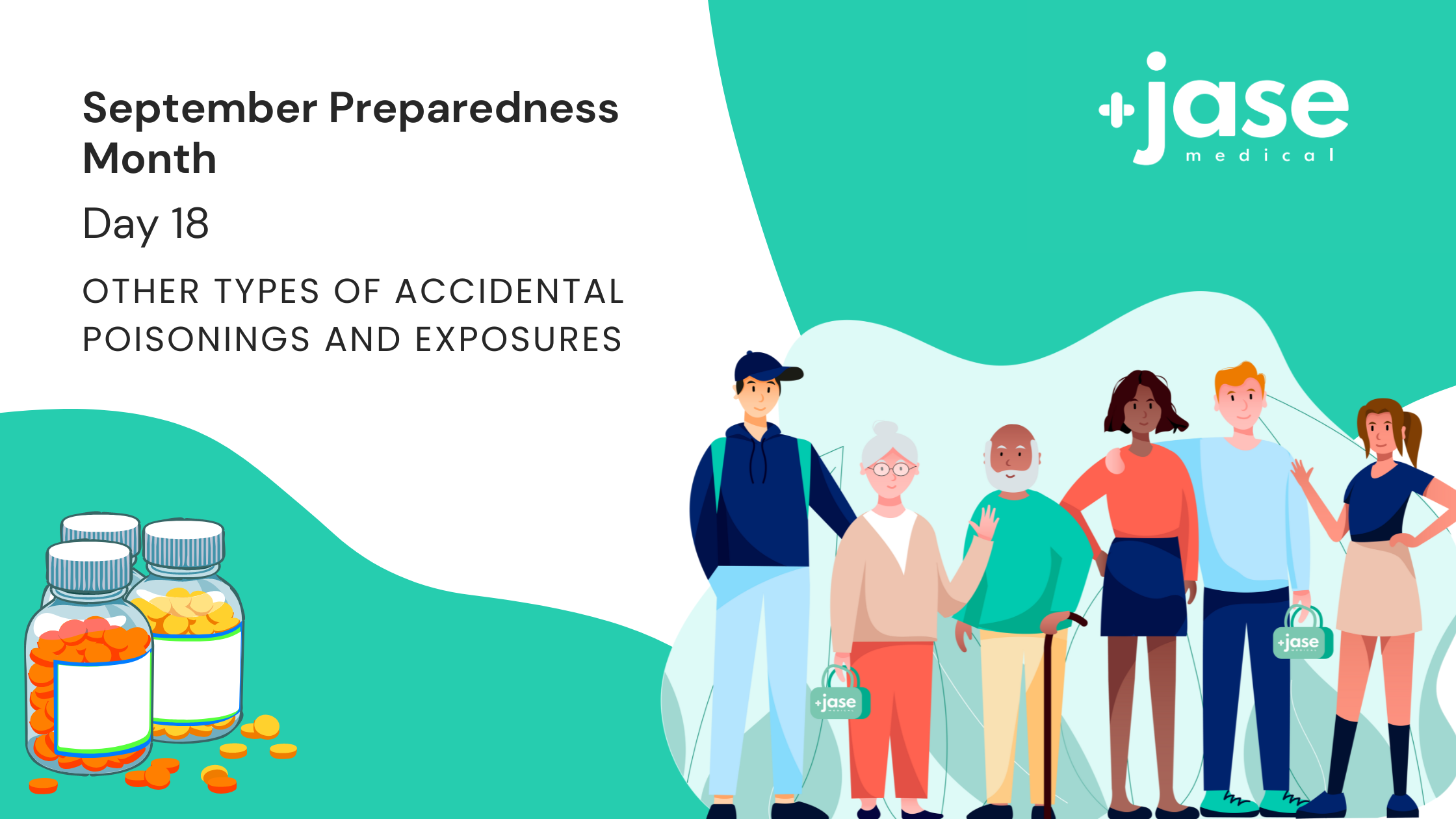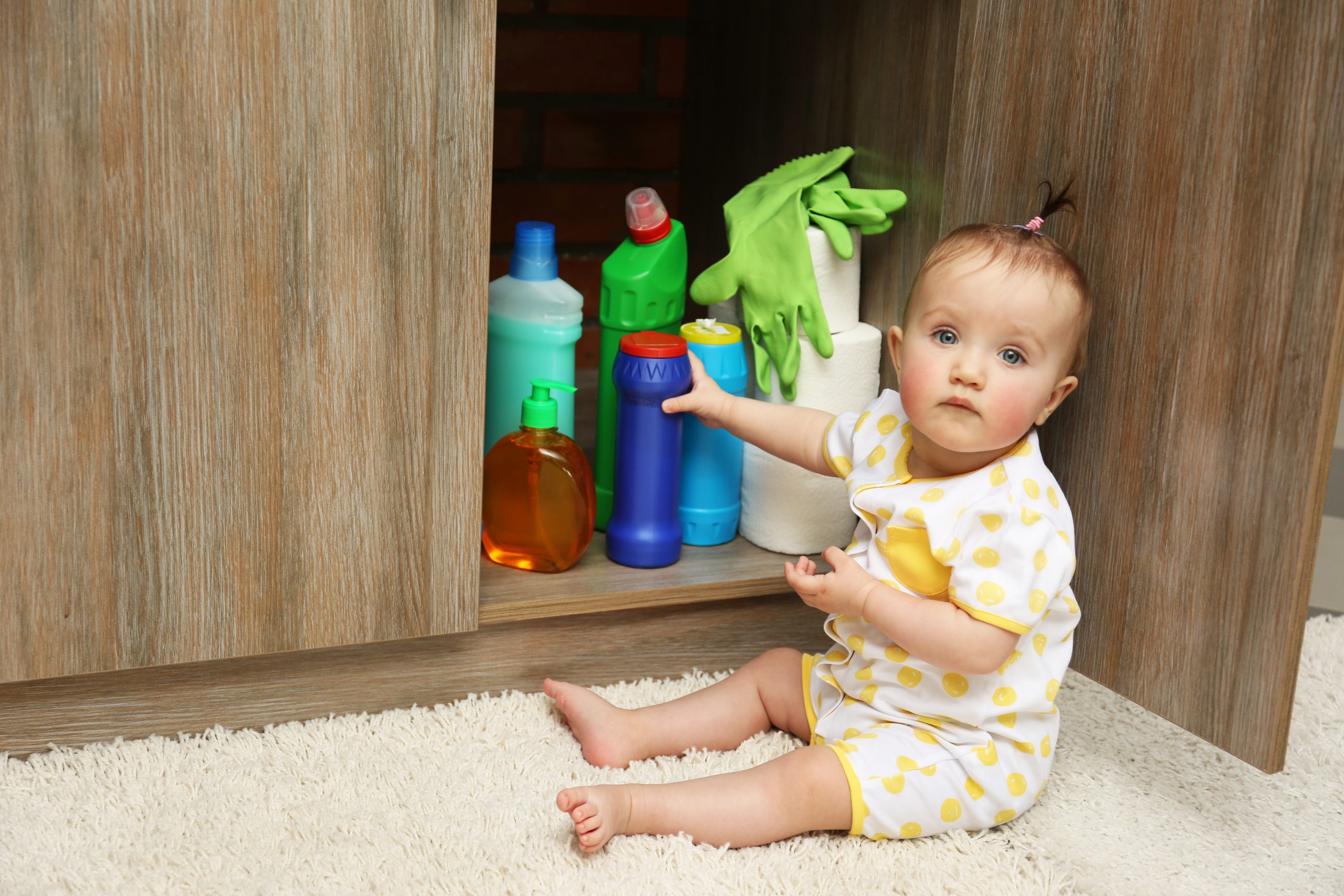
Other Types of Accidental Poisonings and Exposures
Accidental poisonings cover a broad spectrum of populations and exposures. From the toddler ingesting something they found in the yard to medication errors to insect bites, the routes and exposure to toxic are almost endless. Some types of poisonings may not be apparent, and can cause irreparable damage if not caught in time.
As stated in the previous post on household chemical emergencies, poison control center is the fastest way to find out about what to do if you suspect any sort of exposure. Their online tool can help identify if there is a poison emergency and what to do They even have an app you can download for your phone to expedite the process.
According to The National Poison Control Center:
In 2020, the 55 U.S. poison control centers provided telephone guidance for over 2.1 million human poison exposures.
That’s about:
- 6.4 poison exposures/1000 population,
- 37.9 poison exposures in children younger than 6 years/1000 children,
- 1 poison exposure reported to U.S. poison control centers every 15 seconds
Adults comprised almost half of all exposures (47%), followed by children younger than 6 (39%), then teens (8%).
Types of exposures
Our previous post on household chemical exposures details what to do if you or your loved one is exposed to common household chemicals. Below are some other types of accidental poisonings:
The most common types of poisonings in children:
- cosmetics and personal care products
- cleaning substances and laundry products
- pain medications, both prescription and over-the-counter (OTC)
- foreign bodies such as toys and toy parts, coins, and thermometers
- topical preparations like rash creams
- vitamins and supplements
- antihistamines
- pesticides
- plants
- antimicrobials like antibiotics
Most dangerous types of poisonings for children:
- Medications– Over the counter and prescription medications- Remember, there is no such thing as a child proof container. Store all medications out of the reach of children. Do not store medicine in any container other than its original packaging.
-
- Carbon monoxide poisoning Not all poisons are swallowed; some are inhaled, or breathed in. Carbon monoxide gas is in fact an invisible killer. It has no color or odor. Take it seriously. Make sure there’s a carbon monoxide alarm in every sleeping area of your home.
- Button batteries (sometimes called disc batteries) can be found in musical greeting cards, remote controls, key fobs, and other small electronic devices. Be especially mindful of the 20 mm lithium coin cell battery. When swallowed by a child, especially one younger than 4 years, it often lodges in the esophagus causing burns within just 2 hours. A hole in the esophagus may develop and the burn can extend into the trachea or aorta. More than 60 children have died from ingesting button batteries.
- Iron pills are very dangerous for children to ingest. A child can start throwing up blood or have bloody diarrhea within an hour of ingestion
- Cleaning products (covered in previous post)
- Nail glue and primer (used in artificial nails, etc)
- Hydrocarbons: This is a broad category that includes gasoline, kerosene, lamp oil, motor oil, lighter fluid, furniture polish, and paint thinner.
- Wild mushrooms: Many types of mushrooms grow in many areas of the country. Some are deadly to eat.
- Alcohol: When children swallow alcohol, they can have seizures, go into a coma, or even die. This is true no matter where the alcohol comes from. Mouthwash, facial cleaners, and hair tonics can have as much alcohol in them as alcoholic beverages.
- Drain cleaners and toilet bowl cleaners: These caustics cause devastating burns to the mouth, throat and stomach. Drain cleaners may be strongly alkaline and toilet bowl cleaners may be strong acids. If swallowed, they must be diluted immediately to limit the damage that rapidly occurs.
- Topical anesthetics: These medicines can cause seizures or a condition called methemoglobinemia which keeps the blood from carrying oxygen to the tissues. Be especially careful with teething gels, hemorrhoid preparations, anti-itch creams, and sunburn relief agents.
The most common types of poison exposures in adults:
- pain medicines, both prescription and over-the-counter (OTC)
- sedatives, hypnotics, antipsychotics
- antidepressants
- cardiovascular drugs
- cleaning substances (household)
- alcohols
- pesticides
- bites -ticks, spiders, bees, snakes)
- anticonvulsants
- cosmetics and personal care products
What to do if suspected poisoning:
If unconscious, vomiting, seizures, or other signs of distress immediately call 911, then contact via phone, app or online tool the poison control center for guidance. Do not immediately try to induce vomiting until you contact them. Some chemicals are caustic and can cause damage to the esophagus if vomited.
Action Plan:
On the refrigerator or other conspicuous place:
- Keep an envelope with a list of medications and allergies for each family member
- Keep a list of medications and allergies on refrigerator for each family member
- Post poison control center phone number 1-800-222-1222
- Post primary care provider name and number
- Speak with primary care provider about keeping syrup of Ipecac on hand to induce vomiting.
- Brooke Lounsbury
Medical Content Writer
Lifesaving Medications
Recent Posts
Keeping you informed and safe.
FAQ: Our most commonly asked questions about Jase
If you’re considering Jase, chances are you’ve paused and thought, “This makes sense, but I still have a few questions.”You’re not alone. Here are the most common ones we hear, answered plainly. Is this really doctor-prescribed? Yes. Every Jase order is reviewed by a...
Medical Readiness: What Really Kills First
When Disaster Strikes, It’s Not Hunger or Thirst That Takes the First Lives In every disaster zone, from hurricanes in the Caribbean to war zones in Ukraine, the pattern is the same. People worry about food and water, but it’s infection that kills first. A small wound...
Exploring Dr. William Makis’ Hybrid Orthomolecular Cancer Protocol: Focus on Ivermectin and Mebendazole/Fenbendazole
Exploring Dr. William Makis’ Hybrid Orthomolecular Cancer Protocol: Focus on Ivermectin and Mebendazole/Fenbendazole *Disclaimer: This article is for educational purposes and does not constitute medical advice. Always seek professional guidance.* In the evolving...




